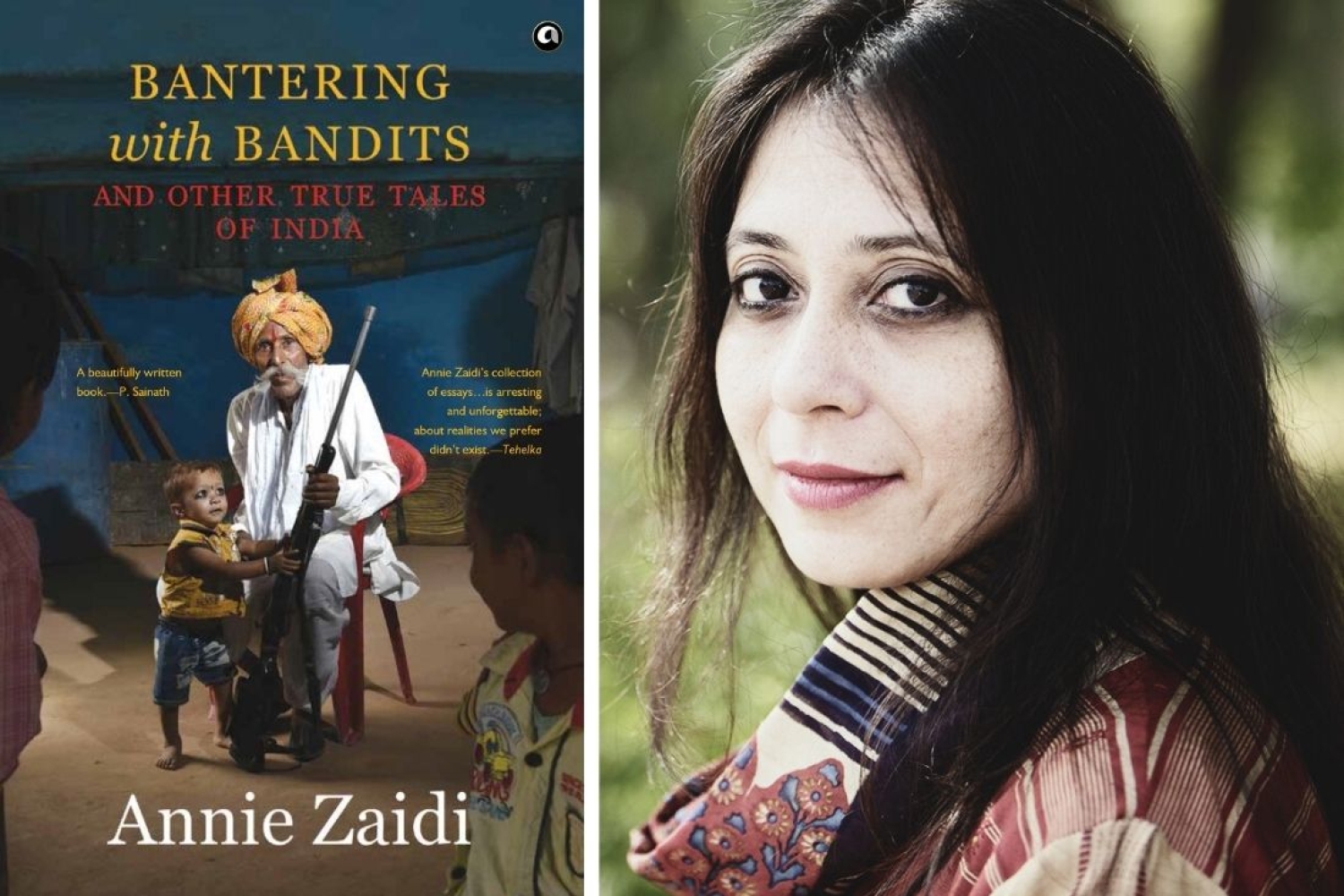

Annie Zaidi, in her new novel Bantering with Bandits and other true tales of India explores reportage, travel and controversy through a personal lens; one that examines her own beliefs, and the country’s. Written in the form of a collection of essays, she aims to study the intersection between economics, social disempowerment, and moral pressures. She elegantly weaves together the personal and the political, in such a way that home, belonging and identity conflicts form the crux of her storytelling. She gives us more insight into the creation of her book below:
What is your first memory of writing?
I don’t have any conscious memory of writing in a creative mien, or trying to ‘write’ in a writerly fashion, as a child. However, I think I did win some kind of writing prize in high school. I forget the details now but it was for an essay and I remember being mildly surprised. I did begin to write my own speeches for debates in school when I was about thirteen. The first time I consciously wrote something with a full awareness of it being an active moment of creation was in college, when I must have been seventeen or eighteen.
What led you to explore the space occupied by dacoits in our cultural imagination?
I suppose because dacoits occupied such a big part of my own cultural consumption. Sholay was one of my favourite films and it is about a bad dacoit. But I also watched other films where the dacoit was either a flawed hero (and sometimes heroine) or at least, is a complicated character like that of the younger son in Mother India. These characters were often created by injustice, and therefore, in a way, their plundering lives could be seen as a sort of pushback against the system. Even though the dacoit usually dies at the end of a film, we mourn his/her death. There are parallels in the figure of the smuggler in Hindi cinema. I find robbery and smuggling to be an interesting lens through which to examine society and its iniquities. Does wealth really ‘flow’ through society? Does wealth flow in the same channels as power does? What role does law-making and law-keeping play in the concentration of wealth and power? In the case of the Chambal, it was particularly interesting because of a concentration of dacoits in that region.
What were some challenges you faced while writing this novel?
This is a set of essays, not a novel. The main challenge was finding a structure that worked to connect the disparate themes in the collection.
In what way was writing this book different from your previous work? Give us some insight into the creation of the book.
This is an updated edition of one of my first book-length books. I had written poems before, and short stories. But with this book, I had to learn to sew up multiple themes, and to find innovative ways of telling stories that I had also tried to tell in other ways – through my reportage and also through my blog. A book must be coherent, whether it is a book of essays or poetry or fiction. A certain consistency of style or similar themes is expected. I tried not to change the original work too much with this edition, but I did want to bring in fresh data and a new introduction, which would help readers to understand how and why certain themes remain relevant.
For you, what constitutes the core of this book?
For me, it is an examination of myself and my country. Through these essays, I sought to understand what it means to be a girl or woman in India, what it means to be displaced or hungry or indebted, and what class, caste and religion have to do with it.
What do you hope readers will take away from this interweaving of the personal and political in your writing?
I hope they will begin to see that justice is not a one-off event. It is a process that is integral to democracy and it must reach every single individual. And that it is impossible to attain equality without justice, and vice versa. We cannot have safety for women without women having the right to make their own sexual choices. We cannot (should not) accept a system that requires our fellow citizens to starve or work in subhuman conditions.
Lastly, what do you have in store for the future?
I’m currently working towards a PhD, researching witches in contemporary South Asian fiction. I’m hoping a few interesting writing projects will emerge.
Words Neeraja Srinivasan
Date 31.08.2023